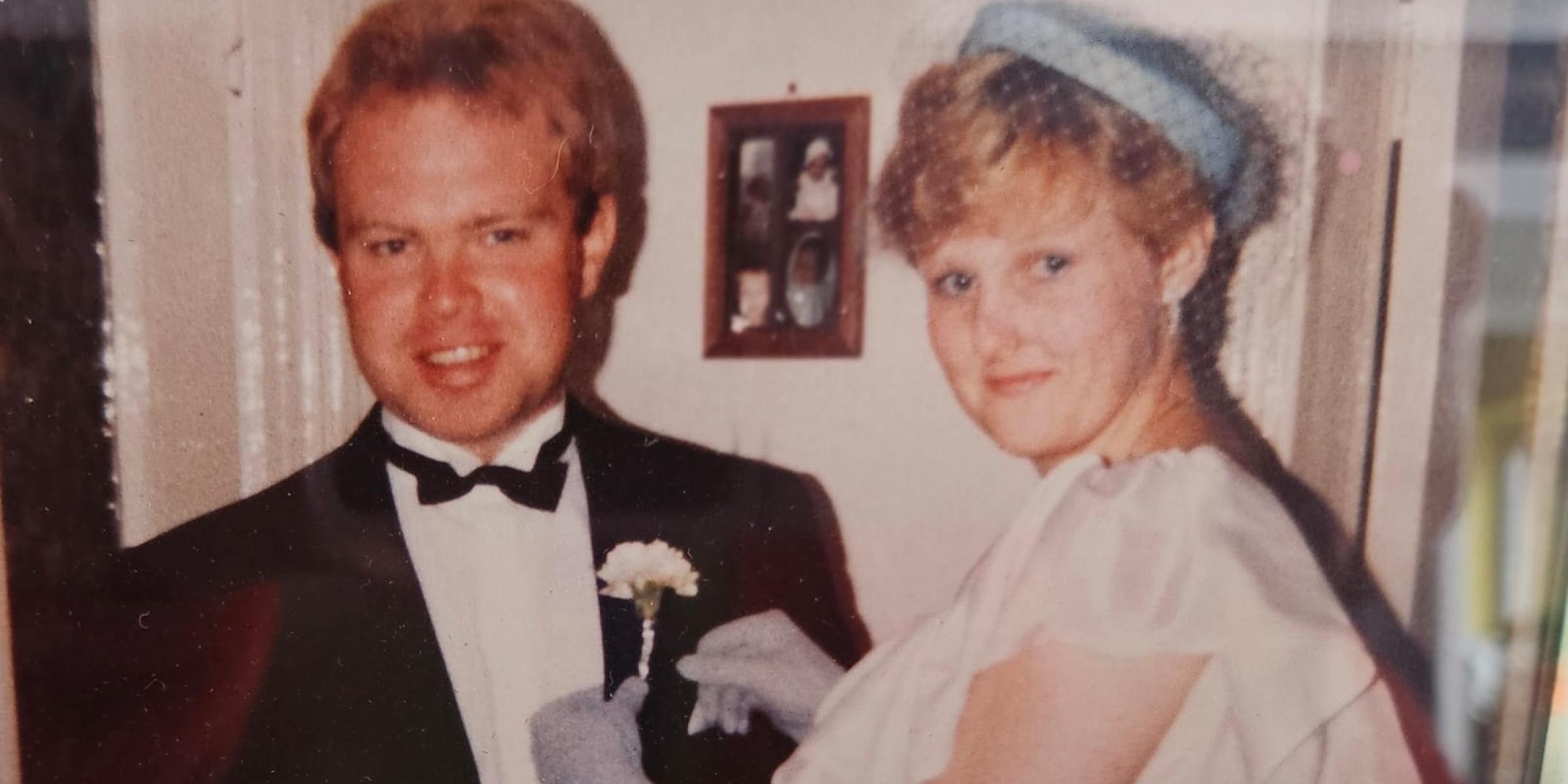
Real stories
It took four years to get a diagnosis after being misdiagnosed
Jackie was diagnosed with early-onset Alzheimer’s disease in October 2023, at the age of 54. It took four years to get a diagnosis after being misdiagnosed.
The years before Jackie's dementia diagnosis
I met Jackie in 1986, at a small bed and breakfast in Blackpool. I was a bricklayer at the time and was working in the town. I remember seeing ‘a nice blonde’, so I asked her out. Two years later in, the May, we were married at the Blackpool Registry Office.
Four or five years ago, we renewed our wedding vows but in the new registry office on the promenade. The original one had shut down.

When we were first married, we bought a touring caravan and we lived in it for two years in Whitecross Bay, until we could afford to buy a house, where we raised three children.
As a bricklayer I worked during the day and Jackie worked in the evenings. She had jobs in an off licence, a chippy, and in Asda. When the kids got older, she worked during the day again. One of her favourite jobs was working in a fabric shop. She loved crafting.
In 2022 I had a heart attack after suffering a mini stroke. I don't know if it was the stress, but I was in hospital for a week, and Jackie found this difficult.
The early signs of dementia
Jackie used to do my estimates for work on the computer. I never really used it, and she was really good, but I started to notice her struggling with the keyboard. I thought maybe it was her eyes, so we went to the opticians and she got the all clear. I used Tippex on the keys to see if it made it easier to see the letters but it made no difference at all.
She was getting frustrated. She has always loved gaming she enjoyed reading her Kindle, but both became too difficult.
She couldn't follow the time anymore and she didn't know the different coins and banknotes and what they meant. I was getting really worried.
Jackie was getting lost in places she knew well. Driving around Blackpool with no idea where she was even though she knew those streets like the back of her hand. This is when she stopped driving completely.
Getting a dementia diagnosis
We were getting passed from pillar to post. She had two brain scans and a memory test, but we were never given the results. The pandemic didn't help.
From 2019 until October 2023 Jackie was told she had depression, menopause symptoms, PTSD, but never once was dementia brought up. We had been reading up on it. We kept asking.
We were told “it's not dementia - she's too young. I don't know why you're here”
Finally in October 2023 Jackie was diagnosed with young-onset Alzheimer's disease at the age of 54.
Being diagnosed, Jackie had said she thought she was going to die. She didn’t know much about Alzheimer’s. Although it was a shock, it was also a feeling of relief. I think we've come to terms with it but it's hard for me watching her change.
Life after a dementia diagnosis
Jackie still has her independence. She has always loved shopping so now I write a note and she shows it to staff in the shops, if she needs any help.
She still does some crafting, but her fine motor skills make it a struggle and we had to clear out a lot of her crafting stuff.
She has always enjoyed music and used to love karaoke, but she can’t keep up with the words now. Being so young she often finds singing groups for people with dementia to have the wrong type of music for her. She wants ABBA, not Vera Lynn!
We take the dogs to Blackpool beach all the time and get exercise every day. Jackie goes to chair yoga, twice a week, ladies groups on another day, and she’s started the Park Walks in Blackpool on a Saturday.
Using technology to help with dementia
We use smart technology when Jackie wants to go out. I like to go fishing and sometimes I'm not here when she wakes, so I set the Amazon Alexa for when she wakes up. She has a small one in the bedroom that tells her what to do and a big one downstairs. She also has a smart watch and when she taps it, it speaks out loud.
I have to help her with her clothes. It's the little things. She can't hang them up anymore. I have also had to learn how to cook proper meals and how to use the computer.
She can't use the remote control and she can't read subtitles. I have to read them out loud for her.
The problem with smart TV's is that they turn themselves off, so I have had to put tape on some of the buttons to make sure the TV stays on. At least I have learned a new career or two. Now I am the cleaner, the head chef and a hair stylist!
Dementia Action Week
Help us make dementia diagnosis a priority this Dementia Action Week.
Find out more about how you can join the campaign to improve dementia diagnosis rates.





LD
saysSharon
saysNoreen C
says